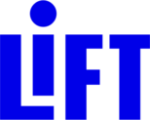In late August we released the statement below in response to the events in Ferguson, MO that broke open a rich discussion about what we could do as individuals and as a society to rebuild trust. The conversation that occurred was powerful. Today, we are reaching out to the LIFT community once again to give witness to the most recent outpouring of pain, frustration, and anger that has rippled through our communities in the wake of the recent grand jury verdicts handed down in MO and NY.
The issues of racism and inequality in America are real. They are urgent. As one commenter in our online discussion so truthfully stated, “Somewhere along the line, human beings got the idea that our differences should divide us. We came to believe that the color of our skin, where we’re from, the amount of money in our bank account, or our sexual orientation … make us inherently better or worse than one another.”
What we continue to believe at LIFT is that it is up to us – as individuals working together – to bridge our differences. And we must courageously take on these issues if we seek greater peace and justice in our communities.
As we said before, we have a responsibility to speak to the truth of what we see and to engage others in this conversation. To that end, we are continuing and expanding this important discussion. Thank you again for having the courage to share what’s on your mind and in your heart.
Statement by LIFT on Ferguson, Race, Poverty, and How We Can Work Toward Healing
Originally posted on August 27, 2014
In light of the recent events in Ferguson, MO, we at LIFT believe that it is important to acknowledge and discuss the strong sentiments of frustration, distrust, and anger that have filled the nightly news cycle the past several weeks. While the protests in Ferguson and across the country have highlighted the injustice of this single incident, the reality is that what’s occurring in Ferguson is emblematic of a more common and subtle experience of racism and the inequality of opportunity that is present day-to-day across our country.
We work in economically strapped urban communities to help community members find jobs, housing, and education – the things that we all need to get by. The members we work with are low-income and 80 percent are people of color. Having partnered with more than 100,000 individuals who are striving to overcome intergenerational poverty, we see the ways in which the convergence of poverty and institutionalized racism too often delay or derail their efforts. It’s already hard to find a job, but our members have the added burden of what their skin color, name, or immigration status signal to society, often to their detriment. Our members become a nameless “them” instead of Debra, Jose, or Tyrone. They become a stereotype with attached expectations, often ones of “otherness” that make it hard to relate, easy to disdain, or worse, easy to fear.
We appreciate through our work that none of us are immune to holding these generalizations. In spite of our best intentions, we too are part of the system. This means we must act against the grain, rather than accept the status quo for what it is. At LIFT, we work to break down the barriers of misunderstanding and distrust by living our core values through our daily work. It means respecting the diversity and differences among all people. It means taking the time to build relationships, which beget inter-cultural bridges of understanding. It means unconditional service to one another and working in true collaboration with all aspects of the community. It means recognizing the human potential we each have to reach for a better life and encouraging a sense of possibility and creativity for how we get there. At the end of the day, it means a true recognition that regardless of race or socio-economic status, we all need the same things to get ahead. Intrinsically, we are no different from one another.
While the LIFT community is a small microcosm, we believe that what we’re striving to model is critical to understanding one another, unraveling institutionalized biases, and ultimately, building happier and more successful communities.
There are still clear racial and economic divides causing deep pain for millions in our country. We need to recognize this and commit to working together to breed a culture of compassion, empathy, and healing. Now is a time to use our voices to heighten the collective consciousness of our nation and stand in solidarity to change the system.
As a social justice organization, we believe we have a responsibility to speak to the truth of what we see and to engage others in this conversation. So let’s start today by talking about it. What’s on your mind? How are you feeling about what’s happening in Ferguson? Have you been on the giving or receiving side of racism or systematic injustice? What change would you like to see? What could we do as a society and individuals to build bridges between cultures? What could be done to rebuild trust?
Thank you in advance for having the courage to share.
